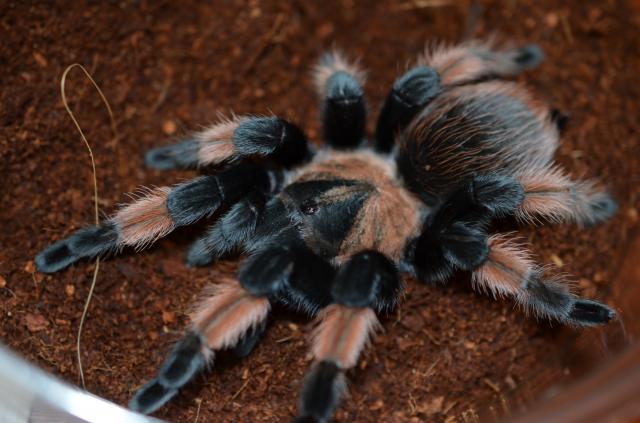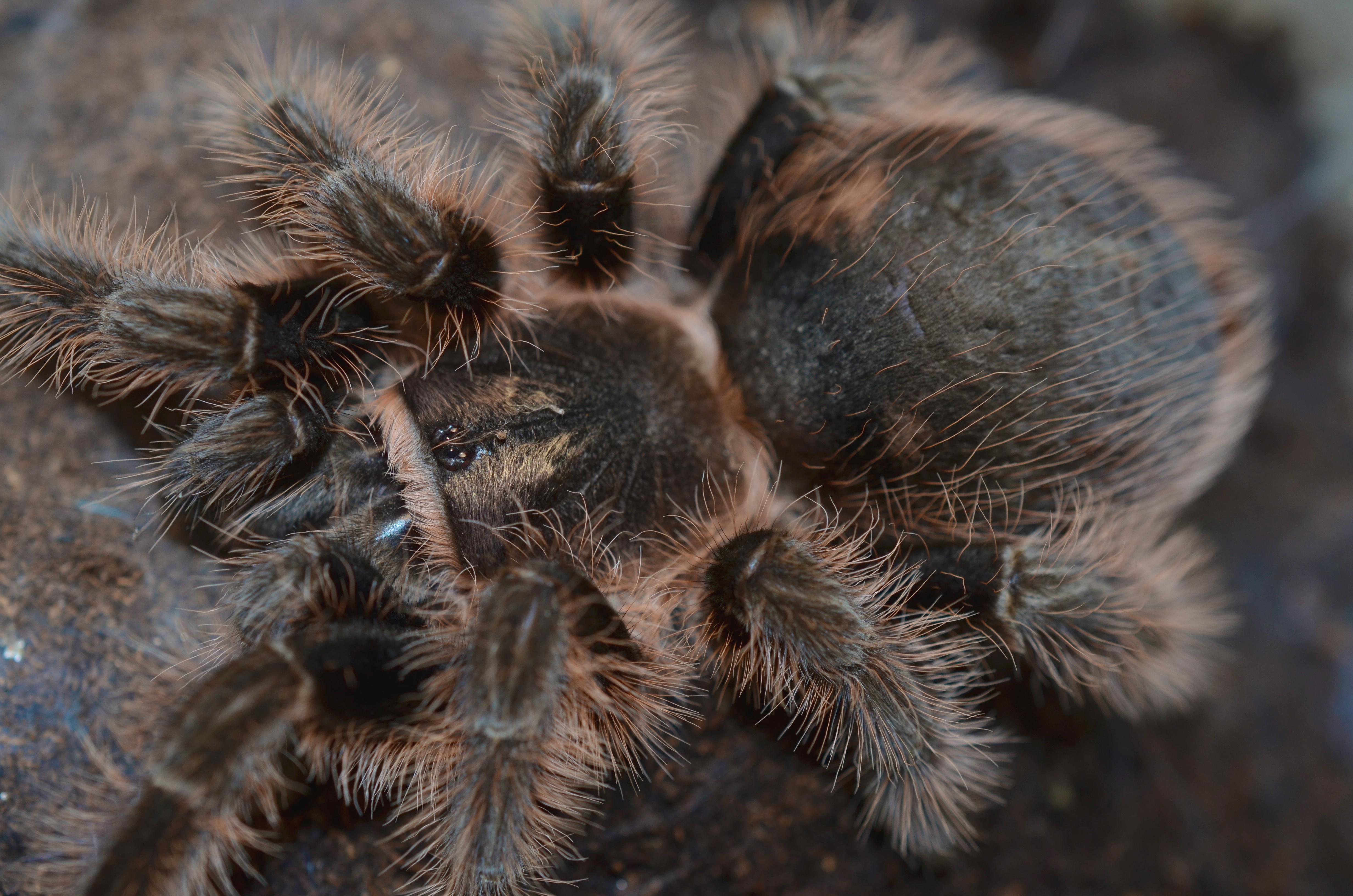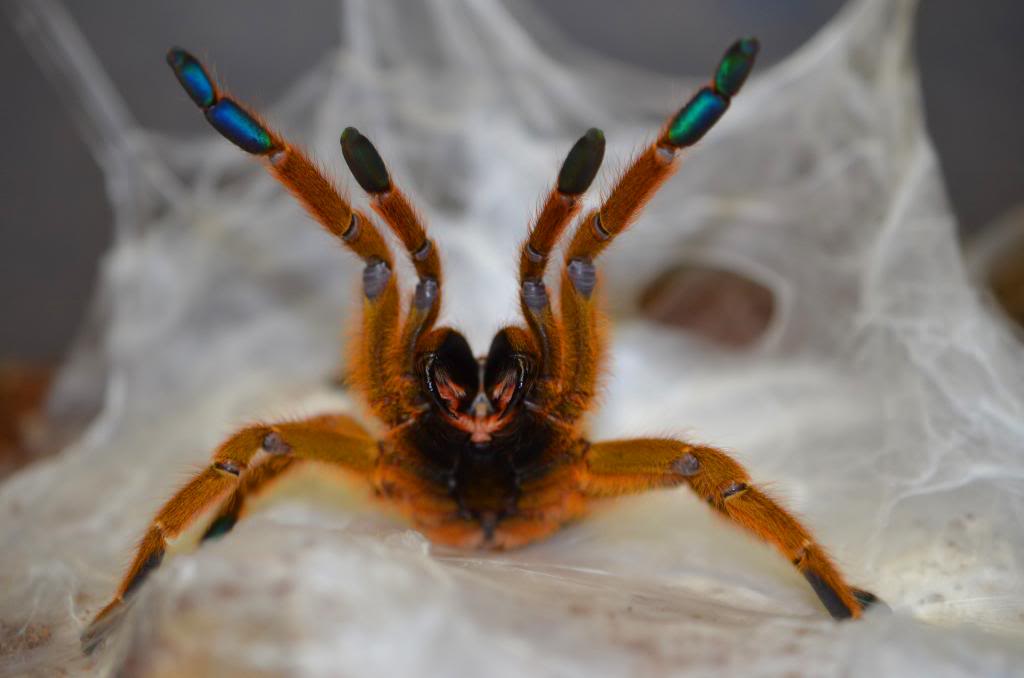Posts in category "Main"

Brachypelma klaasi (Mexican Pink) Care Sheet
07/07/2020
Brachypelma klaasi is also known as the Mexican Pink, Mexican Pink-Leg or Mexican Pink Hair. This spectacular tarantula is coveted by beginners and experienced keepers alike. Known for being colorful and docile this scrub-land/desert tarantula is extremely hardy. Females are known to live longer than 30 years.
Origin: New World. ...
Read more

Brachypelma emilia (Mexican Red Leg) Care Sheet
05/07/2020
Brachypelma emilia is also known as the Mexican Red Leg. This gorgeous tarantula is collected by beginners and experienced keepers alike. Known for being colorful and docile this scrub-land/desert tarantula is extremely hardy. Females are known to live longer than 30 years.
Origin: New World. This scrubland species is native ...
Read more

Tliltocatl albopilosus / Brachypelma albopilosum (Curly hair tarantula) Care sheet
05/07/2020
The Curly Hair would have fit in nicely with the 80s big hair scene. It's long, curly setae "hairs" give this species a very unique appearance, unlike any other tarantula. We not only love this spiders sense of style, it's also known for being docile (yet skittish), long-lived and quite ...
Read more

Brachypelma hamorii / smithi (Mexican Red Knee) Care sheet
05/07/2020
Brachypelma hamorii is the “Hobby Classic Tarantula” also known as the Mexican Red Knee (and formerly B. smithi) this tarantula is coveted by beginners and experienced keepers alike. Known for being large, colorful and docile yet skittish. This scrub-land/desert tarantula is extremely hardy. A long-lived species the females are ...
Read more

Top 10 Most Common Tarantula Hobby Mistakes
12/05/2020
#1 Tarantulas need time to "settle in"
The first week in its new home is an important adjustment period that cannot be ignored or overlooked. Often the hardest thing for beginners is allowing the tarantula time to settle in. I can understand the excitement of a new pet and the equally ...
Read more

DKS - Dyskinetic Syndrome in Tarantulas
12/05/2020
DKS - Dyskinetic Syndrome in Tarantulas
What is Dyskinetic Syndrome?
Dyskinetic Syndrome (often referred to as "DKS") is not a specific disease, but rather a set of symptoms which typically include:
-Jerky and/or twitchy movements
-Loss of motor control (inducing difficulty or inability to walk, eat and drink)
-In ...
Read more




